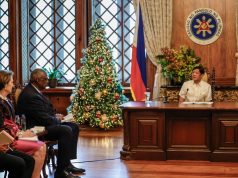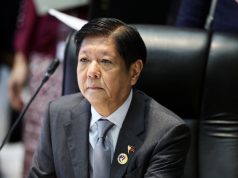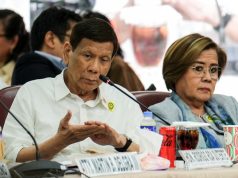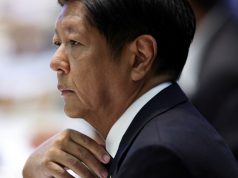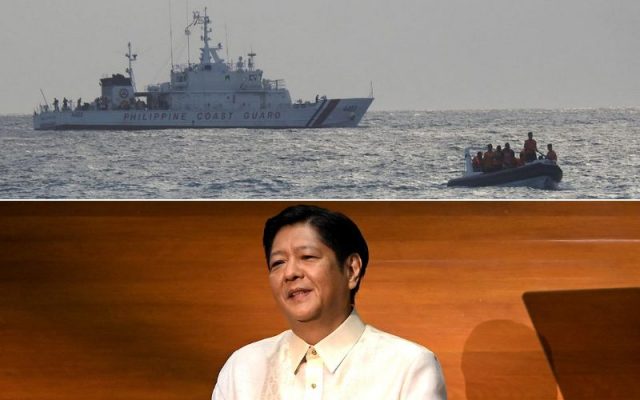
President Ferdinand Marcos Jr. on Monday, July 25, said he will have a firm stand when it comes to protecting the country’s territory as part of the administration’s foreign policy.
In his first State of the Nation Address, Marcos used strong some words in describing what would be the country’s foreign policy.
READ: Key points raised by Marcos in 1st SONA
“On the area of foreign policy, I will not preside over any process that will abandon even a square inch of territory of the Republic of the Philippines to any foreign power,” he said.
While the line was firm and more assertive than that of his predecessor Rodrigo Duterte, Marcos added that the country will still be welcoming to all.
“The Philippines has always been open and welcoming to all our foreign friends and visitors. That is our world view, and that is our culture,” he said.
RELATED: Observations: Loud applause, language switching mark Marcos’ 1st SONA
Unlike SONAs of former president Duterte, Marcos did not directly mention anything about the 2016 arbitral tribunal at the United Nations Convention on the Law of the Sea where the tribunal ruled in favor of the Philippines with regard to the ownership of the West Philippine Sea.
Some social media users also pointed out the non-mention of the UNCLOS ruling and the West Philippine Sea.
“Good. So let’s fight to get the area of West Philippine Sea which was established according to UNCLOS. The Philippines has sovereign rights and jurisdiction over 200-nautical mile exclusive economic zone (EEZ) measured from our territorial baseline. China is claiming almost 90% of the South China Sea which includes the Philippine EEZ. They already stop Filipino fishermen from fishing near Scarborough shoal and many parts of Spratly island chain. They even established airports in two reclaimed part of Spratlys,” a Facebook user said.
“He still has not discussed his plans in the West Philippine Sea, but that might be tackled later on under foreign relations,” another user said in a tweet.
The overlapping, non-lawful claims of China over portions of the South China Sea which the Philippines calls West Philippine Sea are matters of jurisdiction over water, and not of territory.
‘Independent’ foreign policy
Marcos, like every other president in the past, emphasized that the country will observe an independent foreign policy.
Article two Section seven of the Constitution said that the Philippines should observe an independent foreign policy.
He said that the Philippines will “commit to maintaining good relations with the rest of the world.”
“The Philippines will continue to promote stronger and multi-faceted relationships with all our partners around the world,” he said.
On July 22, a Senate resolution was filed urging Marcos to resume talks with China over potential cooperation in oil and gas development in the West Philippine Sea.
The resolution cited Article 12, Sec. 2 of the constitution which allowed the country to “directly undertake to or enter into co-production, joint venture or production-sharing agreements on petroleum and other mineral oils and all forces of potential energy” without infringing the country’s sovereignty.
RELATED: FULL TEXT: Marcos’ 2022 State of the Nation Address





